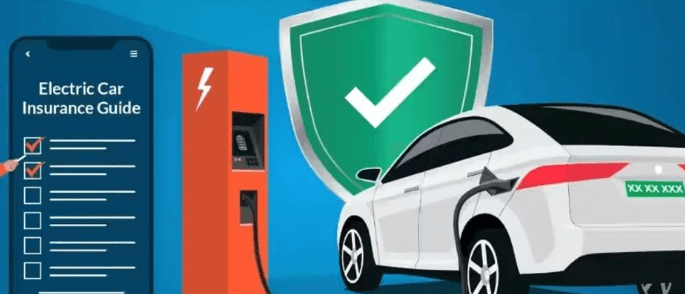
Insuring Your Electric Car: What You Need to Know Before Buying
The global spotlight on electric vehicles (EVs) highlights their crucial role in addressing climate change and reducing emissions and underlines the significance of eco-friendly components for a sustainable environment.
Government Initiatives In India
India is making strides towards a greener future, with the NITI Aayog report suggesting that adopting shared, electric, and connected mobility policies could save 37% of carbon emissions and 64% of energy demand for road transport by 2030. Government incentives, such as reducing Goods and Services Tax (GST) on Li-ion electric vehicle batteries from 28% to 18%, showcase a commitment to promoting EV adoption. The benefits of buying electric cars in India include reduced carbon emissions, lower operating costs, and government incentives, making them an environmentally friendly and cost-effective choice for conscious consumers. **
In a noteworthy move, the Insurance Regulatory and Development Authority of India (IRDAI) has mandated incentives for electric car owners. Private electric vehicle insurance now comes at a 15% reduced cost compared to conventional vehicles, fostering a sustainable electric car insurance industry approach. #
Carmaker Contributions And Increasing Options
Indian car giants Hyundai, MG, Mahindra, and Tata, alongside global brands like Lexus, Nissan, Porsche, Maruti, Audi, and Tesla, are set to launch new electric models in India. Electric car prices range from Rs 7 lakh to Rs 24 lakh, with options like the Mahindra e2oPlus at Rs 7.46 lakh, the Tata Nexon at approximately Rs 15 lakh, and the Hyundai Kona Electric at around Rs 24 lakh, offering diverse choices across price ranges. Anticipated releases include Maruti’s WagonR Electric and Futuro-E, which contribute to the evolving electric vehicle landscape.
Insurance Adaptations For Electric Vehicles
Presently, electric car owners in India opt for conventional insurance plans, but the landscape is evolving. Recognising the unique needs of EVs, comprehensive policies cover own damage, battery explosion during charging, and third-party liability and offer flexibility with or without battery coverage. *
Key Features Of A Comprehensive Insurance Policy
You get a wide range of covers to protect your electric vehicle. These encompass depreciation reimbursement, protection against no-claim bonuses (NCBs), repair of glass, fibre, plastic, and rubber parts, coverage for loss of personal belongings, emergency transportation and lodging costs, daily allowance, invoice return, key replacement, motor secure, tyre secure, consumable expenses, and roadside assistance. Claims are subject to terms and conditions set forth under the motor insurance policy. *
Whether planning to purchase an upcoming electric vehicle or seeking specialised electric vehicle insurance for an existing EV, insurance providers ensure comprehensive coverage for electric car owners’ evolving needs.
Challenges And Changing Landscape
Despite the promising trajectory of electric vehicles in India, challenges persist, including limited charging infrastructure and the relatively high cost of EVs. However, ongoing efforts to develop sustainable ecosystems and address these obstacles indicate a promising shift towards a future where choosing an electric vehicle over a conventional one is not just a personal preference but a responsible choice for the environment. When comparing electric cars vs petrol cars in India, electric vehicles offer a greener and more sustainable option, with the added advantages of lower operational costs and decreasing government incentives for EV adoption.
*Standard T&C Apply
**Tax benefits are subject to change in prevalent tax laws.
#Visit the official website of IRDAI for further details.
Disclaimer: The content on this page is generic and shared only for informational and explanatory purposes. It is based on several secondary sources on the internet and is subject to changes. Please consult an expert before making any related decisions.
Insurance is the subject matter of solicitation. For more details on benefits, exclusions, limitations, terms, and conditions, please read the sales brochure/policy wording carefully before concluding a sale.






